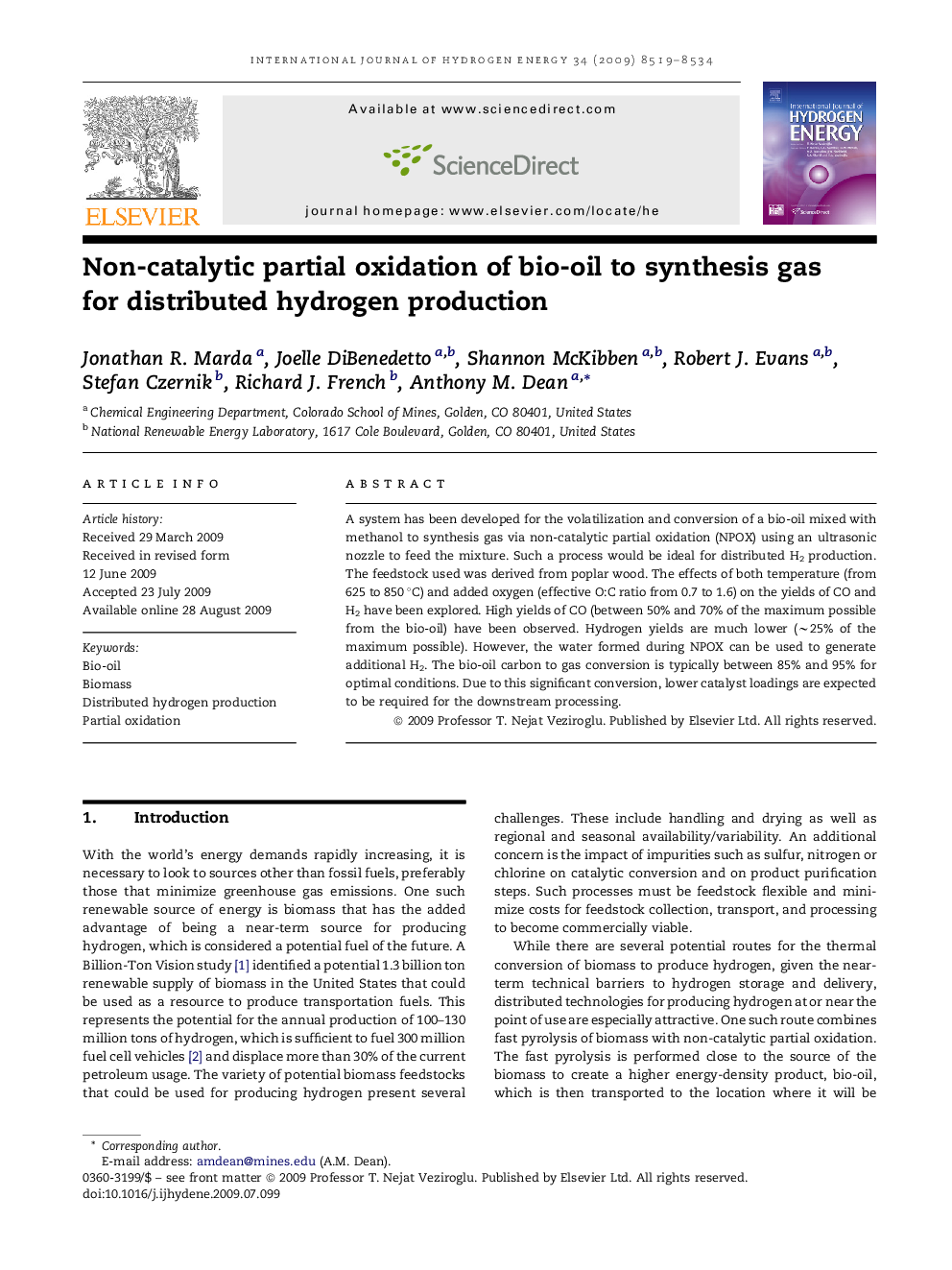| Article ID | Journal | Published Year | Pages | File Type |
|---|---|---|---|---|
| 1278428 | International Journal of Hydrogen Energy | 2009 | 16 Pages |
A system has been developed for the volatilization and conversion of a bio-oil mixed with methanol to synthesis gas via non-catalytic partial oxidation (NPOX) using an ultrasonic nozzle to feed the mixture. Such a process would be ideal for distributed H2 production. The feedstock used was derived from poplar wood. The effects of both temperature (from 625 to 850 °C) and added oxygen (effective O:C ratio from 0.7 to 1.6) on the yields of CO and H2 have been explored. High yields of CO (between 50% and 70% of the maximum possible from the bio-oil) have been observed. Hydrogen yields are much lower (∼25% of the maximum possible). However, the water formed during NPOX can be used to generate additional H2. The bio-oil carbon to gas conversion is typically between 85% and 95% for optimal conditions. Due to this significant conversion, lower catalyst loadings are expected to be required for the downstream processing.
